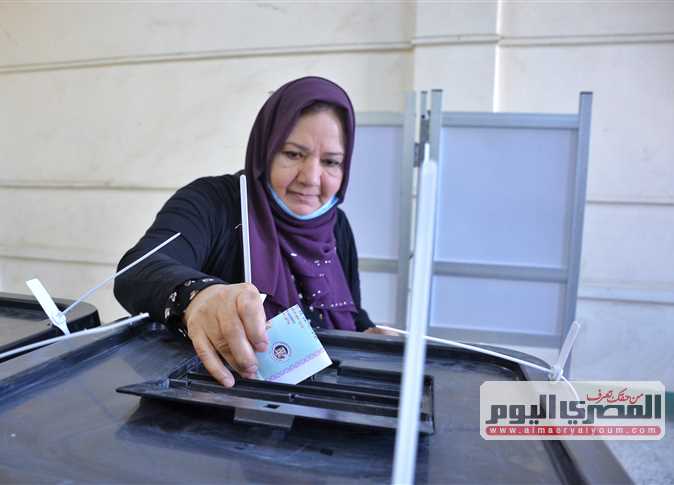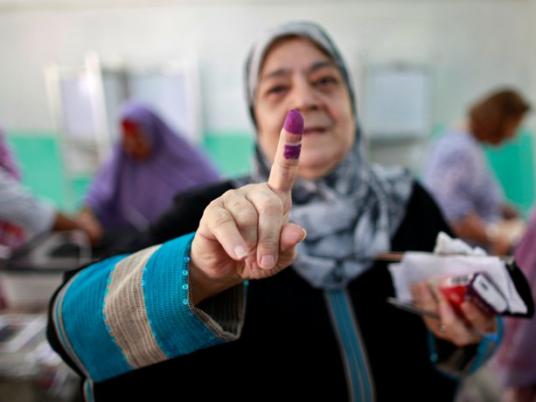News of presidential elections and parliamentary mayhem yet again dominate much of the local papers. But first, a story about the limit on freedom of expression among Egypt’s police forces warrants attention.
A group of police officers are in trouble with their superiors for refusing to follow orders while on duty and letting it all hang out — their beards, that is. Independent Al-Tahrir says the group “I am a bearded policeman” is ignoring Interior Minister Mohamed Ibrahim’s orders to shave their beards while on duty.
The beard controversy “will blow up in the interior minister’s face” while he is away making rounds of inspections in Upper Egypt, according to Al-Wafd. The party paper reports 77 police officers in Assiut will resign during the Interior Minister’s visit there if their request to let their beards run wild and free are not responded to by superiors.
Al-Tahrir writer Hala Eid criticizes the fact that the “free the beards” campaign has become a public opinion issue while the country is still recovering from the football violence in Port Said and trying to deal with pressing economic and political issues.
On to one of those issues, dozens in Upper Egypt continue sit-ins and demonstrations in protest of the continuation of the propane tank crisis in many different governorates. In the independent Al-Shorouk paper, Monufiya Governor Ashraf Hafez has decided to collect ID numbers as a method of distributing tanks, while Qalyubiya Governor Adel Zayed insists there is no tank supply problem, contrary to local discontent.
Freedom and Justice newspaper, tied to the Muslim Brotherhood’s political party, reports that in the Sohag Governorate eight residents decided to go on a hunger strike due to the shortage, while others started sit-ins in front of depots and crowded streets.
A week-long conflict between two feuding families — Humaydate and Ashraf — in Qena Governorate finally ended when security forces raided many of the households thought to hold illegal weapons and arrested 40 suspects, according to Al-Shorouk. The fighting families then proceeded to battled it out over a yet-to-be-determined reason, exchanging gunfire and terrorizing residents in the meantime.
State-run Al-Ahram states that much of the Qena violence was the result of young irresponsible men running amok with fully automatic machine guns and grenade launchers. Only 13 were injured, but many areas of Qena were paralyzed because of the threat of violence between two of the area’s largest families. Elders from each of the two families, as well as the third largest family, the Arab family, are reportedly negotiating a system or code of conduct for them to follow, according to Al-Ahram.
Also in Al-Ahram, members of the university professors committee are set to vote on a new law proposed by Higher Education Minister Hussein Mostafa Moussa that would increase their monthly salaries. The starting salary for a university professor would be LE25,000, an assistant professor LE17,000, and a teacher’s assistant at LE3,000.
Assistant Foreign Affairs Minister Ahmed Ragheb said there are attempts by countries such as Qatar, Jordan, the United Arab Emirates and other Gulf countries to decrease the number of Egyptian expat workers, according to the Al-Shorouk magazine. Ragheb said at a session for Parliament’s Human Rights Committee that this might be happening because of the discontent in Arab countries over Mubarak’s trial or statements by former Foreign Minister Nabil al-Araby regarding strengthening ties with Iran.
Because of the “sponsor system” most Gulf countries use to control expat labor, most foreigners are left with a very limited ability to seek protection from their home countries and are usually at the mercy of their employer. According to the FJP paper, the human rights committee will look into formally requesting an abandonment of the sponsor system in Arab countries.
Returning to the presidential elections and People’s Assembly madness, Al-Ahram reports that the High Judicial Elections Committee delayed the date individuals can officially apply for candidacy in the presidential elections to 10 March, needing the signatures of 30,000 individuals from 15 different governorates. The paper did not indicate any possible date for presidential elections.
Presidential candidates are all over the papers. Former Arab League Secretary General Amr Moussa was putting in his “common man” hours, eating with his hands while campaigning in Beheira Governorate as pictures Al-Ahram and Al-Tahrir show. Moussa, who is frequently pictured with a cigar in hand, is instead shown shoveling food with his fingers. Al-Tahrir quotes Abdel Moneim Aboul Fotouh, former Muslim Brotherhood leader who has since split to begin his own presidency run, voicing fears regarding the military council’s potential role in the elections.
“I fear a conspiracy on the elections,” he said.
Many of the existing candidates raised fears that members of former President Hosni Mubarak’s regime or candidates who are allegedly endorsed by the military could have a financial advantage, along with unfair access to state media, according to Al-Ahram. The two candidates in mind were Omar Suleiman, former intelligence chief and vice president under Mubarak, and Nabil al-Araby, a post-revolutionary foreign minister and current Arab League secretary general. The two are rumored to be the consensus choice between the military and the Muslim Brotherhood. Araby denied he has “any intention to run under any circumstances,” according to Al-Shorouk.
Parliament saw another chaotic day as many MPs members took issue with a metaphor Social Democratic Party MP Ziad al-Elaimy made when he referred to Field Marshal Hussein Tantawi, head of the ruling military council, and a popular saying. Al-Ahram reports that Elaimy is now under investigation in Parliament. Many MPs took Elaimy’s use of the phrase “We left the donkey and held onto the stirrup” to refer to Tantawi as a direct insult to the military leader rather than a metaphor. Freedom and Justice ran the dramatic headline “Cursing in the name of the revolution” over the remarks, though it was news, not an opinion piece.
State-run papers ran relatively balanced-headlines on this issue.
Elsewhere in FJP’s news, three pages in its “investigations” section were used to describe how the Muslim Brotherhood has all the qualities necessary to lead in “all fields.”
Meanwhile, yesterday’s parliamentary session saw MPs verbally attacking Supply and Social Affairs Minister Gouda Abdel Khaleq. They criticized the government’s lack of solutions on unemployment. People’s Assembly Speaker Saad al-Katatny forced Abdel Khaleq to sit-down after MPs were dejected by Abdel Khaleq’s patronizing method of response, Al-Ahram said.
Egypt's papers:
Al-Ahram: Daily, state-run, largest distribution in Egypt
Al-Akhbar: Daily, state-run, second to Al-Ahram in institutional size
Al-Gomhurriya: Daily, state-run
Rose al-Youssef: Daily, state-run
Al-Dostour: Daily, privately owned
Al-Shorouk: Daily, privately owned
Al-Wafd: Daily, published by the liberal Wafd Party
Youm7: Daily, privately owned
Al-Tahrir: Daily, privately owned
Freedom and Justice: Daily, published by the Muslim Brotherhood's Freedom and Justice Party
Sawt al-Umma: Weekly, privately owned
Al-Arabi: Weekly, published by the Nasserist Party
Al-Nour: Official paper of the Salafi Nour Party




